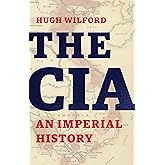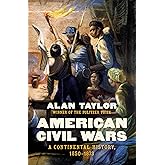
Amazon Prime Free Trial
FREE Delivery is available to Prime members. To join, select "Try Amazon Prime and start saving today with FREE Delivery" below the Add to Cart button and confirm your Prime free trial.
Amazon Prime members enjoy:- Cardmembers earn 5% Back at Amazon.com with a Prime Credit Card.
- Unlimited FREE Prime delivery
- Streaming of thousands of movies and TV shows with limited ads on Prime Video.
- A Kindle book to borrow for free each month - with no due dates
- Listen to over 2 million songs and hundreds of playlists
Important: Your credit card will NOT be charged when you start your free trial or if you cancel during the trial period. If you're happy with Amazon Prime, do nothing. At the end of the free trial, your membership will automatically upgrade to a monthly membership.
Buy new:
-30% $27.88$27.88
Ships from: Amazon.com Sold by: Amazon.com
Save with Used - Very Good
$21.30$21.30
$3.99 delivery April 21 - 22
Ships from: HPB-Diamond Sold by: HPB-Diamond

Download the free Kindle app and start reading Kindle books instantly on your smartphone, tablet, or computer - no Kindle device required.
Read instantly on your browser with Kindle for Web.
Using your mobile phone camera - scan the code below and download the Kindle app.



 Audible sample
Audible sample Follow the author
OK
They Called It Peace: Worlds of Imperial Violence Hardcover – February 13, 2024
Purchase options and add-ons
A sweeping account of how small wars shaped global order in the age of empires
Imperial conquest and colonization depended on pervasive raiding, slaving, and plunder. European empires amassed global power by asserting a right to use unilateral force at their discretion. They Called It Peace is a panoramic history of how these routines of violence remapped the contours of empire and reordered the world from the fifteenth to the twentieth centuries.
In an account spanning from Asia to the Americas, Lauren Benton shows how imperial violence redefined the very nature of war and peace. Instead of preparing lasting peace, fragile truces ensured an easy return to war. Serial conflicts and armed interventions projected a de facto state of perpetual war across the globe. Benton describes how seemingly limited war sparked atrocities, from sudden massacres to long campaigns of dispossession and extermination. She brings vividly to life a world in which warmongers portrayed themselves as peacemakers and Europeans imagined “small” violence as essential to imperial rule and global order.
Holding vital lessons for us today, They Called It Peace reveals how the imperial violence of the past has made perpetual war and the threat of atrocity endemic features of the international order.
- Print length304 pages
- LanguageEnglish
- PublisherPrinceton University Press
- Publication dateFebruary 13, 2024
- Dimensions6.4 x 1.2 x 9.3 inches
- ISBN-100691248478
- ISBN-13978-0691248479
Discover the latest buzz-worthy books, from mysteries and romance to humor and nonfiction. Explore more
Frequently bought together

Customers who viewed this item also viewed
From the Publisher

Editorial Reviews
Review
"Shortlisted for the Cundill History Prize, McGill University"
"Finalist for the PROSE Award in World History, Association of American Publishers"
"a radical and important book."---Christopher Kissane, Irish Times
"A nimble and provocative history."---Michael Ledger-Lomas, Jacobin
"Benton...uses harrowing case studies from around the world, and contextualizes events within the work of contemporary intellectuals." ― New Yorker
"The book offers a strikingly original account not only of the significance of the proliferation of small wars across the globe; but of how what came to be called 'international law' was deployed by European powers . . . a remarkable achievement."---Anthony Pagden, Journal of Early Modern History
"A thoughtful short history of imperial violence. . . . Recommended." ― Choice Reviews
"The book spans centuries of history, delving into accounts of imperialist violence from Asia to South America, often focusing on lesser-known victims of imperialist violence."---Sophie Squire, Socialist Worker
"Highly original."---David Lorimer, Paradigm Explorer
"No one has been more articulate than Benton in showing how ‘the regime of armed peace mapped clear pathways from lawful interventions with modest objectives to brutal campaigns of dispossession and extermination. . . a move from treating individuals as criminals to defining whole communities as natural enemies.’"---Ron Slate, On the Seawall
"An encouraging turning point in the revision of the whole history of European imperialism . . . ground-breaking."---Leonardo Clausi, The Political Quarterly
"A wonderful survey of the interplay of legal ideas and violence in European empires from the early modern era to the present."---William Smiley, Legal History JOTWELL
Review
“Elegantly and grippingly written, They Called It Peace works brilliantly with its complex material, bringing out the great range of forms of imperial violence that have proliferated in the space between all-out war and all-out peace and using them to power deeply original historical arguments. Lauren Benton connects contemporary political theory and its categories with raids and treaty making in a way that is unusual, always illuminating and never forced. The topicality of this rigorous and exciting book is obvious: as Benton shows, we live in a world shaped by the legacy of ‘small wars’ and by their persistence in the present.”—Christopher Clark, author of The Sleepwalkers: How Europe Went to War in 1914
“Our greatest historian of empire and law is at the height of her powers in this breathtaking reinterpretation of ‘small wars’ that did—and do—massive damage. Lauren Benton reads canonical writers against the backdrop of patterned and routine force across centuries and hears those often omitted from self-congratulatory stories of how the violent weaned themselves from their violence. The results decisively rebuke those exaggerating breakthroughs for humanity or peace in a world of contestation and domination—past and present.”—Samuel Moyn, author of Humane: How the United States Abandoned Peace and Reinvented War
“An important global reinterpretation of the relationship between violence, empire, and law.”—Heidi J. S. Tworek, author of News from Germany: The Competition to Control World Communications, 1900–1945
About the Author
Product details
- Publisher : Princeton University Press (February 13, 2024)
- Language : English
- Hardcover : 304 pages
- ISBN-10 : 0691248478
- ISBN-13 : 978-0691248479
- Item Weight : 1.45 pounds
- Dimensions : 6.4 x 1.2 x 9.3 inches
- Best Sellers Rank: #122,227 in Books (See Top 100 in Books)
- #33 in Caribbean & Latin American Politics
- #60 in Colonialism & Post-Colonialism
- #128 in European Politics Books
- Customer Reviews:
About the author

Lauren Benton is Barton M. Biggs Professor of History and professor of law at Yale University. She writes about empires, international order, and legal politics. Benton received the Toynbee Prize for significant contributions to global history.
Customer reviews
- 5 star4 star3 star2 star1 star5 star67%0%21%12%0%67%
- 5 star4 star3 star2 star1 star4 star67%0%21%12%0%0%
- 5 star4 star3 star2 star1 star3 star67%0%21%12%0%21%
- 5 star4 star3 star2 star1 star2 star67%0%21%12%0%12%
- 5 star4 star3 star2 star1 star1 star67%0%21%12%0%0%
Customer Reviews, including Product Star Ratings help customers to learn more about the product and decide whether it is the right product for them.
To calculate the overall star rating and percentage breakdown by star, we don’t use a simple average. Instead, our system considers things like how recent a review is and if the reviewer bought the item on Amazon. It also analyzed reviews to verify trustworthiness.
Learn more how customers reviews work on AmazonTop reviews from the United States
There was a problem filtering reviews. Please reload the page.
- Reviewed in the United States on March 15, 2025A refreshing perspective on the reality of the impact of the colonial powers on native populations
- Reviewed in the United States on March 7, 2025Good condition. Good read.
- Reviewed in the United States on September 14, 2024I didn't see anything in this book that was new or added to the fact that the strongest, richest and most technologically advanced exploit the weaker for their own benefit. As I read each of her philosophical musings and examples I kept saying to myself and your point is?
- Reviewed in the United States on October 31, 2024Rich, insightful, and relevant, this book taught me a great deal. It took me a little while to understand how the author organized her material, but this is not my field. It was well worth the effort. I purchased the audible edition along with the book and found that combining reading and listening to the book made for a richer experience.
- Reviewed in the United States on August 12, 2024Was drawn to this book by its subject, which greatly interests me. But this is an analytical study that lacks argumentative coherence. The author's scope appears to be established by happenstance rather than out of any specific rationale grounded in the structure of the argument. It struck me as a collection of sometimes provocative musings rather than a rigorous and insightful analysis. To be everywhere at once is to be nowhere.
- Reviewed in the United States on September 9, 2024"For centuries, the world has worked with an impoverished vocabulary to describe the violence on the threshold of war and peace," writes Benton, and she begins the rectification of this problem with superb nuance and commitment to granular understanding of both the objective conditions and subjective realities of colonial imperialism. On every page I learned something I didn't know or that contradicted some commonly held opinion I took for gospel. There is a point where fine analysis, a coherent argument, and deep research move beyond 'description' and take on the value of informed ethical witness. This book is there.
- Reviewed in the United States on September 8, 2024Lauren Benton's book debunks current distortion and myths about European imperial violence. They Called It Peace will change the way we think about small wars and peace. The book is vividly written, thoroughly researched and instantly absorbing. It should be read widely.
- Reviewed in the United States on February 19, 2024This book will redefine our understanding of small wars and their impact. It is sweeping, gorgeously written, and deeply relevant to our modern culture. I recommend it to historians but also any curious readers seeking deeper understanding of global imperial violence.















